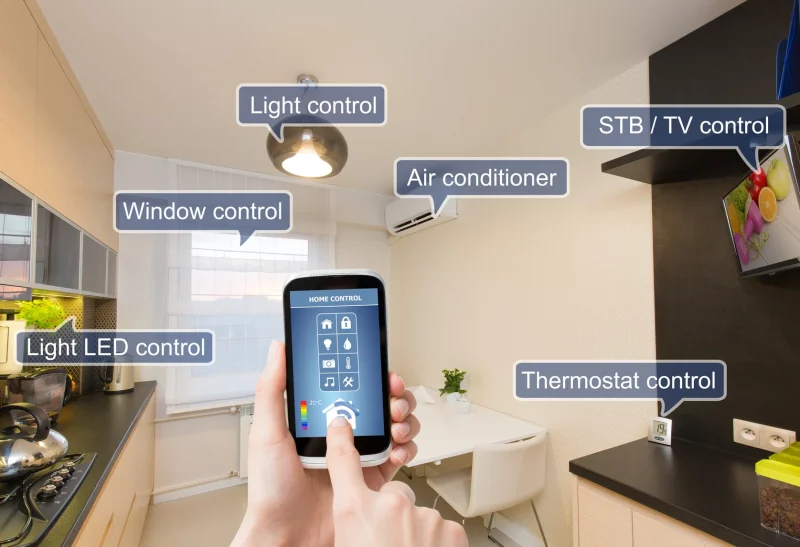A smart home is a house that uses internet-connected devices to enable the remote monitoring and management of domestic appliances and systems, such as lighting and heating.
Smart home systems, also often referred to as home automation, provide homeowners security, comfort, convenience, and energy efficiency by allowing them to control smart devices, easily by a smart home app on their smartphone or other networked devices.
Smart home systems and other devices often operate together, sharing consumer usage data among themselves and automating actions based on the homeowners’ preferences.
Post Outline
Examples of Smart Home Systems
Nearly every aspect of life where technology has been introduced has felt its impact, especially in our homes. Smart home technology has been introduced to our homes:
- Smart TVs: They have the ability to connect to the internet to access content through mobile applications, such as on-demand video and music. Some smart TVs also feature voice or gesture recognition.
- Smart Lighting Systems: This includes Hue from Philips Lighting; it can detect when occupants are in the room and adjust lighting as needed. Smart light bulbs can also regulate themselves based on daylight availability.
- Smart Thermostats: Nest from Nest Labs Inc., come with an integrated Wi-Fi feature, allowing occupants to schedule, monitor, and remotely control home temperatures. These devices also have the ability to understand homeowners’ behaviors and automatically modify settings to provide occupants with maximum comfort and efficiency.
- Smart Locks: Smart home devices like smart locks allow users can grant or deny access to visitors. Smart locks can also detect when occupants are near and unlock the doors for them.
- Security Cameras: This device allows users to monitor their homes when they are away or on vacation.
- Smart Motion: Smart sensors are also able to identify the difference between occupants, visitors, pets, and burglars, and can notify security authorities if suspicious behavior is detected. Kitchen appliances of all sorts are also available, for example, smart coffee makers, smart refrigerators, slower cookers, and toasters; and, in the laundry room, washing machines and dryers.
Smart Home Pros and Cons
One of the most loved benefits of smart home systems is providing peace of mind to occupants, allowing them to monitor their homes remotely, preventing dangers such as a forgotten coffee maker left on or a front door left unlocked.
Smart home systems also help consumers improve efficiency. Instead of leaving the AC on throughout the day, a smart home system can learn and understand behaviors and make sure the house is cooled down by the time occupant arrive home from work.
A major drawback of smart homes is their perceived complexity in operation; some people are not familiar with technology or will give up on it with the first inconvenience.
Related Posts:
- 6 Things to Consider When Buying a Computer
- 8 Cool Gadgets Every Girl Should Have
- 3 Tips to Protect Phone Camera
